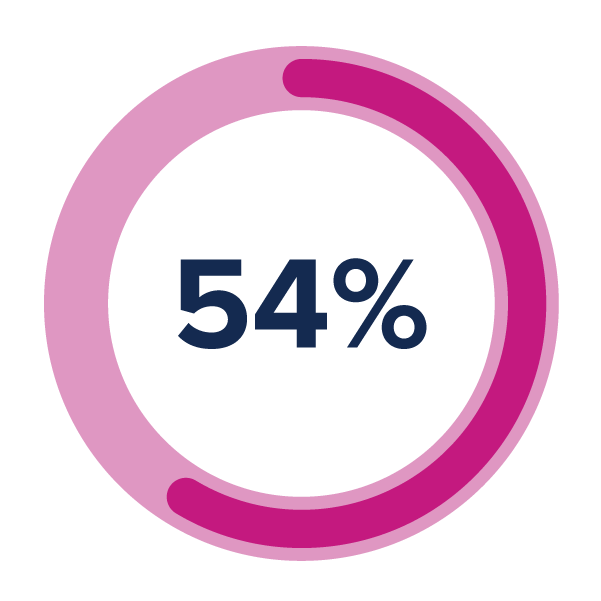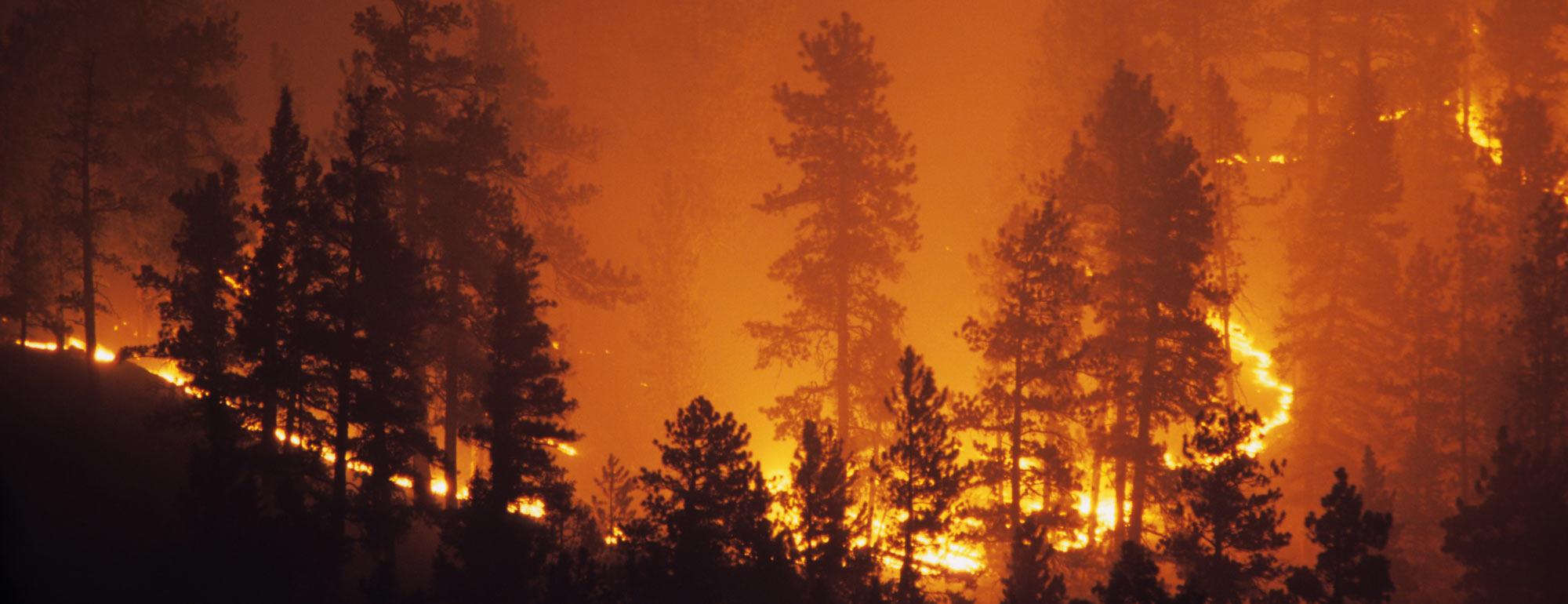
Impacts
The impacts of climate change
Few people would be making a big deal of climate change if the changes weren’t making big differences in land, air, water, infrastructure and economies — the ingredients of our daily lives. Climate science offers a wide lens on how ecosystems and social systems affect each other. The science and stories behind each impact present more questions we must now answer to support communities into the future.
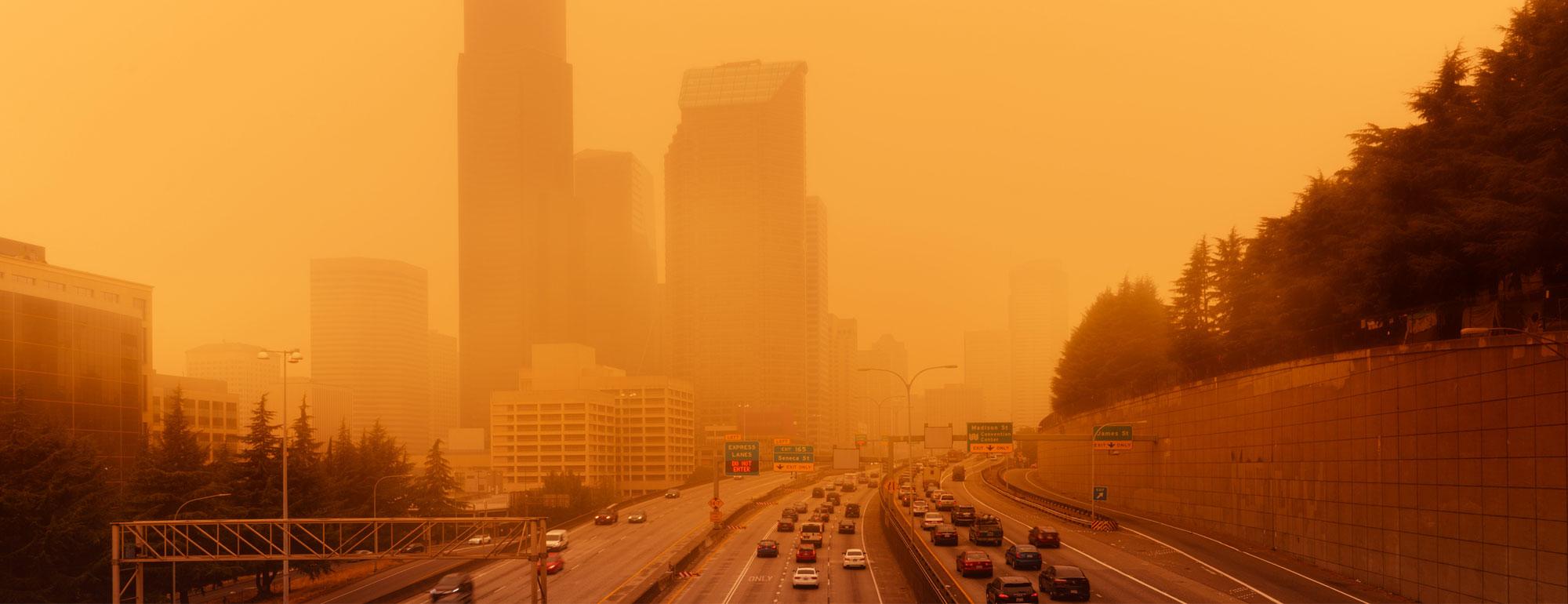
Emissions are increasing
An Ongoing Experiment in Our Atmosphere
Since the Industrial Revolution, when humans began rapidly burning fossil fuels for energy and transportation, global carbon dioxide emissions have increased from about 280 parts per million to 405 ppm in 2016. Data from NOAA’s Mauna Loa observatory shows the rate of CO2 growth over the past decade is 100 to 200 times greater than what Earth experienced during the transition from the last Ice Age.
More about emissions
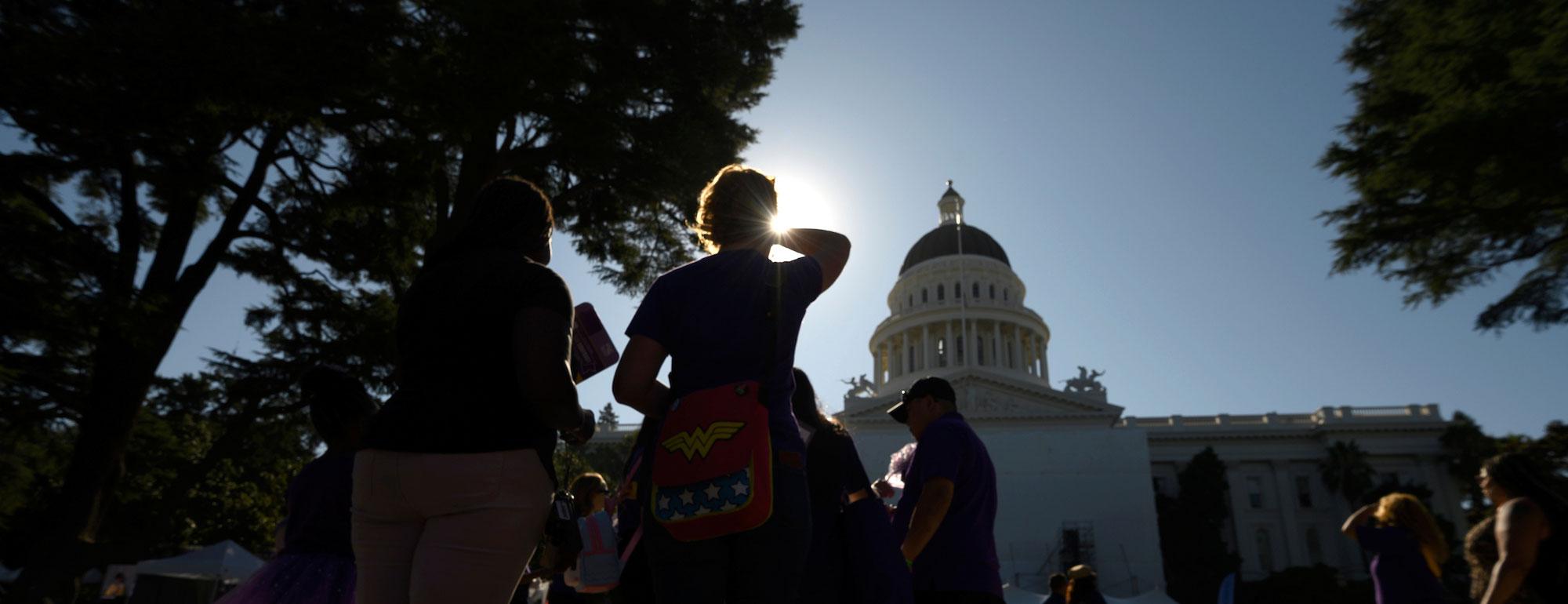
The heat is on
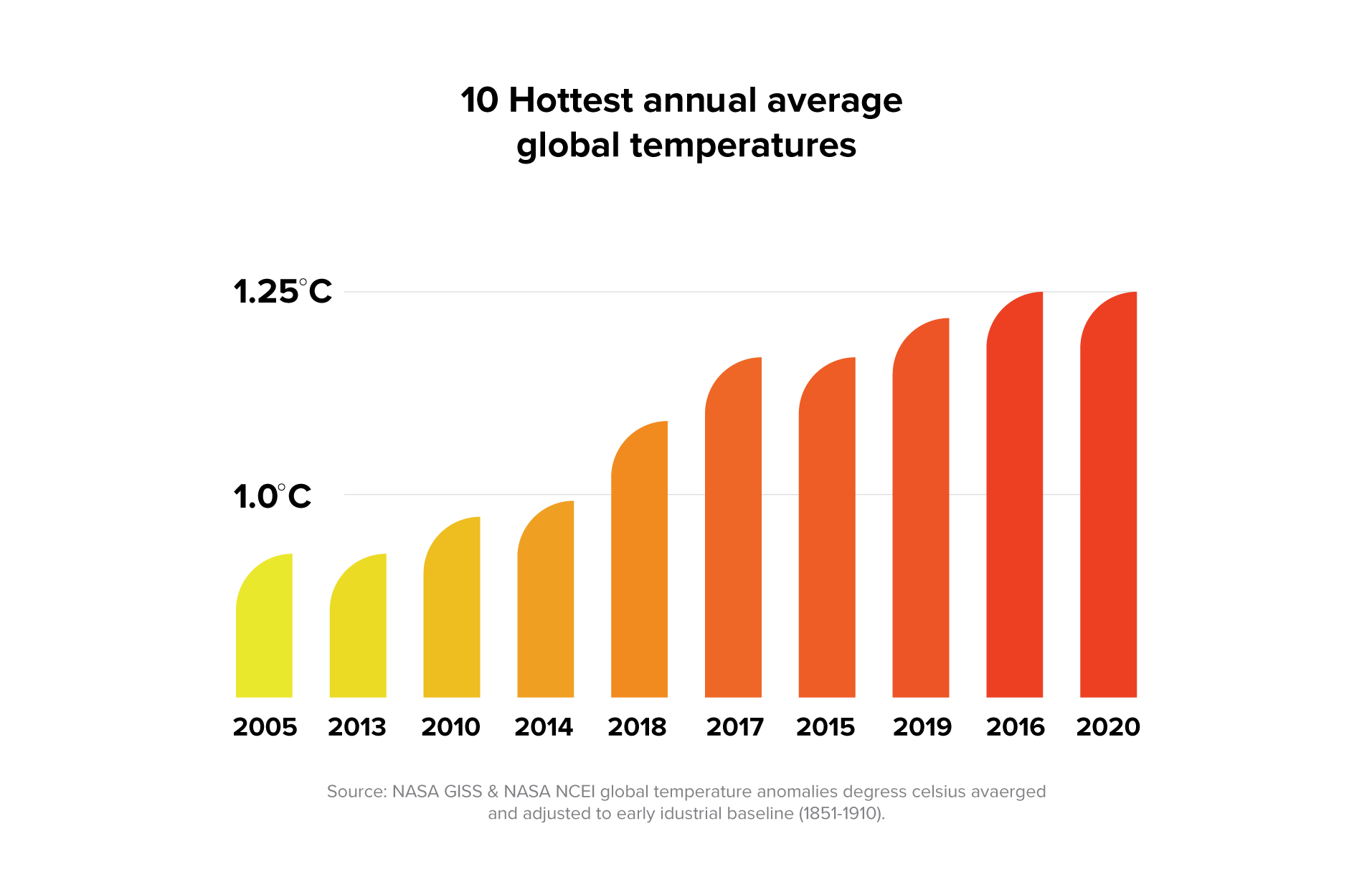
Rising Temperatures Boosting Winds, Wildfires, and Hurricanes
Climate change makes the threat of extreme weather events more likely. And it makes some extreme weather events more severe. Warming temperatures on land and sea, more frequent heat waves, stronger and wetter hurricanes, and hotter, drier, more intense wildfire seasons are the fingerprints of climate change.
More about rising temperatures
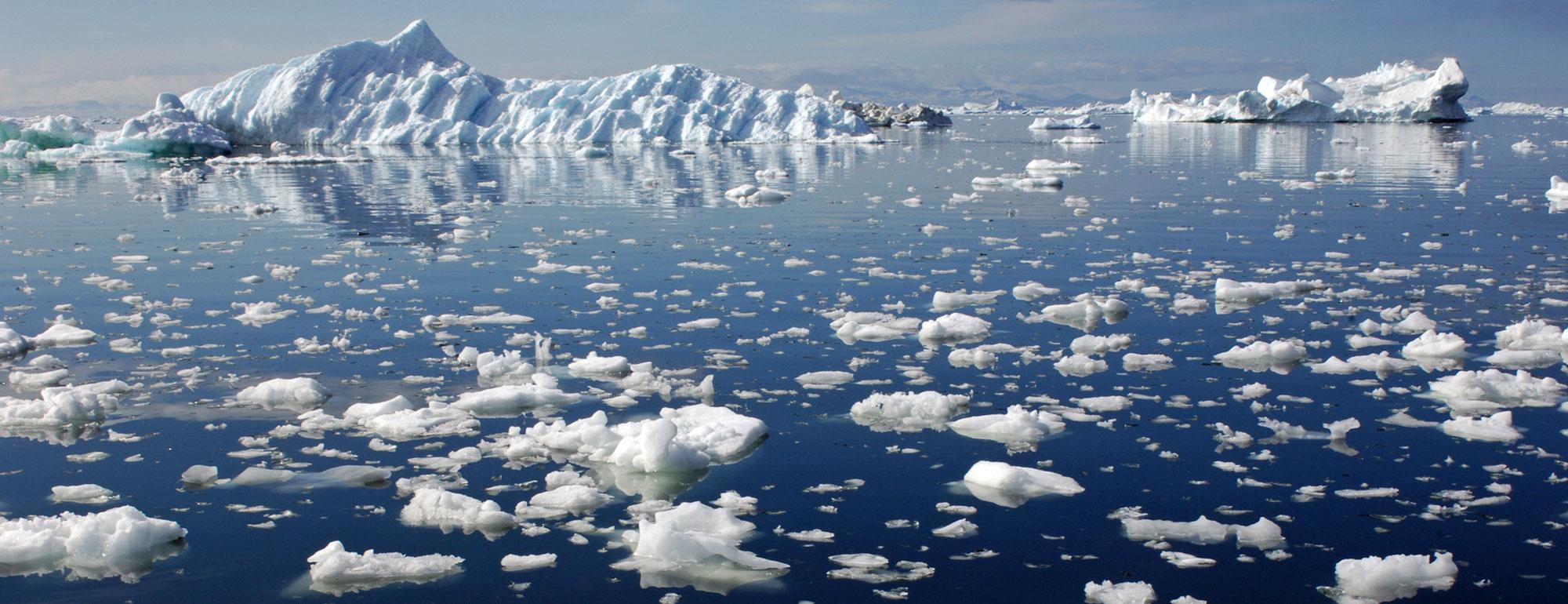
The ice is melting
1.2 trillion tons of ice are lost from Earth each year.
The average global ice mass lost from Greenland, Antarctica and Earth’s glaciers and ice caps from 2010-2020 was about 1.2 trillion tons, the equivalent of 480 million Olympic-sized swimming pools annually.

